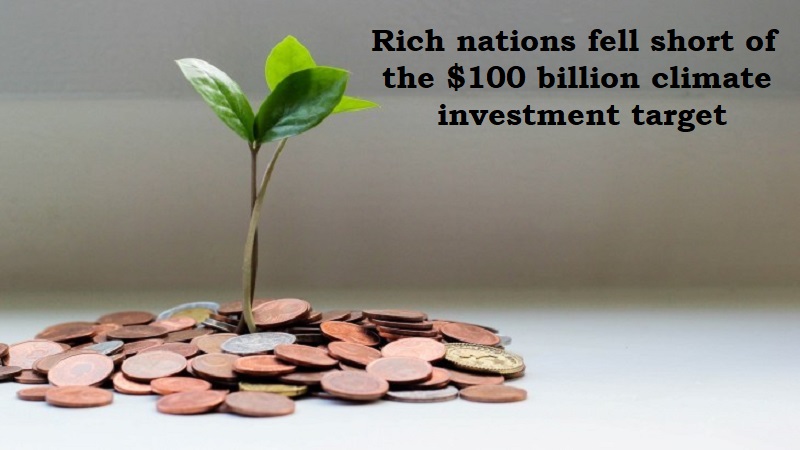
According to the OECD, wealthy nations have fallen short of a long-standing commitment to provide $100 billion to assist developing nations in coping with climate change.
Developed nations pledged in 2009 that by 2020 they would send $100 billion annually to weaker states suffering from more catastrophic disasters and climate-related effects.
According to the Organisation for Economic Co-operation and Development (OECD), they actually contributed $83.3 billion in 2020, falling $16.7 billion shy of the goal.
The goal’s failure is not unexpected. Rich countries have already indicated that the aim will not be reached until 2023. The OECD uses U.N. data that has been processed with a two-year delay.
But it is a blow ahead of COP27, the United Nations’ annual climate summit in November, where countries will face pressure to cut CO2 emissions faster.
Finance has emerged as a sticking point in these negotiations, with developing economies claiming they cannot afford to reduce pollution without assistance from the wealthy countries that produce the majority of the CO2 emissions that warm the world.
Although it was acknowledged that $100 billion is a pittance compared to the actual requirements of vulnerable governments, Yamide Dagnet, Climate Justice Director at the Open Society Foundations, emphasised that honouring that commitment is essential to restoring confidence.
According to Dagnet, ‘We need rich countries to provide credible plans to increase their climate financing.’
The numbers are not broken down by specific nations by the OECD. It stated that it was unclear how the economic downturn brought on by COVID-19 may have affected the contributions made by the various nations, which included public loans, grants, and private investments that official entities assisted in mobilising.
In recent years the European Union and its 27 member countries have, together, been the biggest climate finance provider.
The world’s poorest countries are also demanding recompense for these growing climate-related costs as crop-shrinking droughts, rising sea levels, as lethal heat strike them.
Until now, the US, EU, and other major polluters have opposed measures that would result in such payments, but some officials claimed that attitudes were starting to change.
Belize’s ambassador to the UN, Carlos Fuller, stated, ‘I think a Loss and Damage Funding Facility is gathering traction.’
We must now focus on the industrialised nations that are still wary, he said.

Post Your Comments